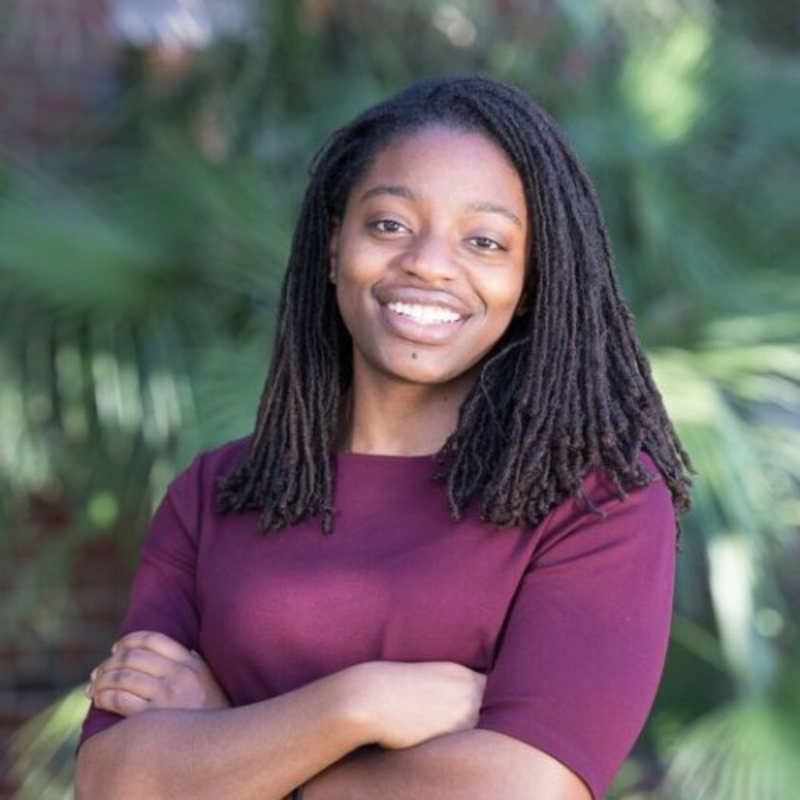Erika Moore Receives NSF CAREER Award
Incoming Assistant Professor Erika Moore, set to join the Fischell Department of Bioengineering (BIOE) at the University of Maryland (UMD) this September, was named a 2023 recipient of the prestigious National Science Foundation (NSF) Faculty Early Career Development Program (CAREER) Award. The NSF CAREER Award supports early-career faculty who have demonstrated potential as academic role models and research leaders in their field. Highly competitive, the award is considered one of the most distinguished honors given to early career faculty. "It's a tremendous honor to be selected," says Moore on her award win. "I am so excited to progress from a hypothesis into a proposal and now into future work we will execute at UMD." With the support of this five-year, $614,000 award, Moore’s research will seek to better understand the process of macrophage immune cells as they guide tissue homeostasis, wound healing, and tissue regeneration through signals from their microenvironment. More specifically, Moore is interested in the relationship between the macrophage immune cells’ extracellular, or environmental, matrix (ECM) and its integrin receptors—a relationship that directs wound healing and for which researchers currently have limited methods of understanding. Macrophage immune cells can direct wound healing by adopting a range of functional states, including a pro-inflammatory state and a pro-tissue healing state. To change their functional state, macrophages receive signals from their microenvironment via their ECM. The ECM directs macrophage function through the pairing of integrin receptors—found on macrophage membranes—and their associated ligands—molecules found throughout the ECM that can bind to the receptors. The ECM integrin receptor-ligand pair can determine the macrophage functional state. Moore’s research project aims to increase understanding of how ECM ligands inform macrophage function by using biomaterial tools to quantify ECM ligand influence. Moore explains, "For me, this is so cool because it would allow us to better understand how ECM composition directs cellular function. This is something that has not been readily explored in macrophage biology." Alongside her research, Moore will integrate education and outreach opportunities for students, including a biomaterials business project plan for undergraduate students, a biomaterial career workshop for historically excluded students, and biomaterial projects for middle school students. Moore is currently an assistant professor in the Department of Materials Science & Engineering at the University of Florida. She also directs Moore Lab, a lab dedicated to biomedical research around the regenerative potential of the immune system. Moore will continue her CAREER project research and the work of Moore Lab at UMD when she begins her appointment with BIOE early fall semester. On her transition to UMD, Moore says, "UMD is filled with such fantastic education and outreach partners for this work. I am excited to work with the BRIDGE program in partnership with Rosemary Parker in the Center for Minorities in Science and Engineering to execute on our education goals. I am also thrilled to recruit from the outstanding graduate students already coming to UMD!" “Dr. Moore brings a wealth of experience and expertise in biomaterials that augment the body’s immune system, and the NSF CAREER Award is a wonderful recognition of her leadership in the field,” says John Fisher, Fischell Family Distinguished Professor and Department Chair of BIOE. “I am sure Dr. Moore will have an incredible impact on this growing field—and the Fischell Department of Bioengineering—for many years to come.” Moore is the first BIOE faculty member to win the award in 2023, but joins several current members of the department as NSF CAREER Award winners, including Katharina Maisel (2021), Gregg Duncan (2021), Giuliano Scarcelli (2020), Steven Jay (2018), Silivina Matysiak (2015), Chis Jewell (2014), Ian White (2012), and Helim Aranda-Espinoza (2007).
Related Articles: June 16, 2023 Prev Next |
|


